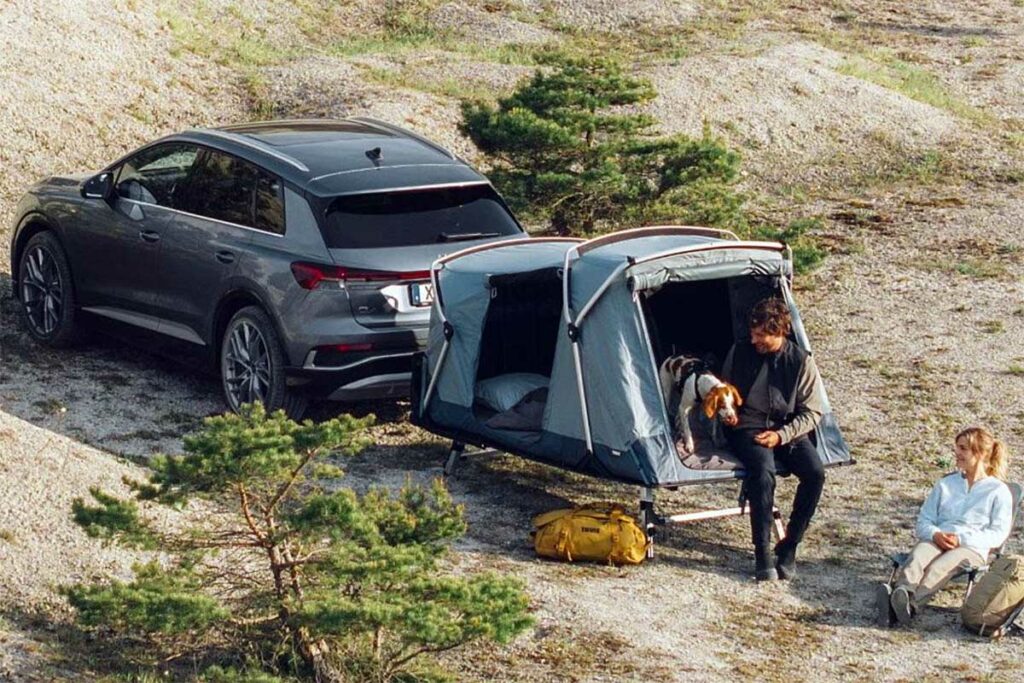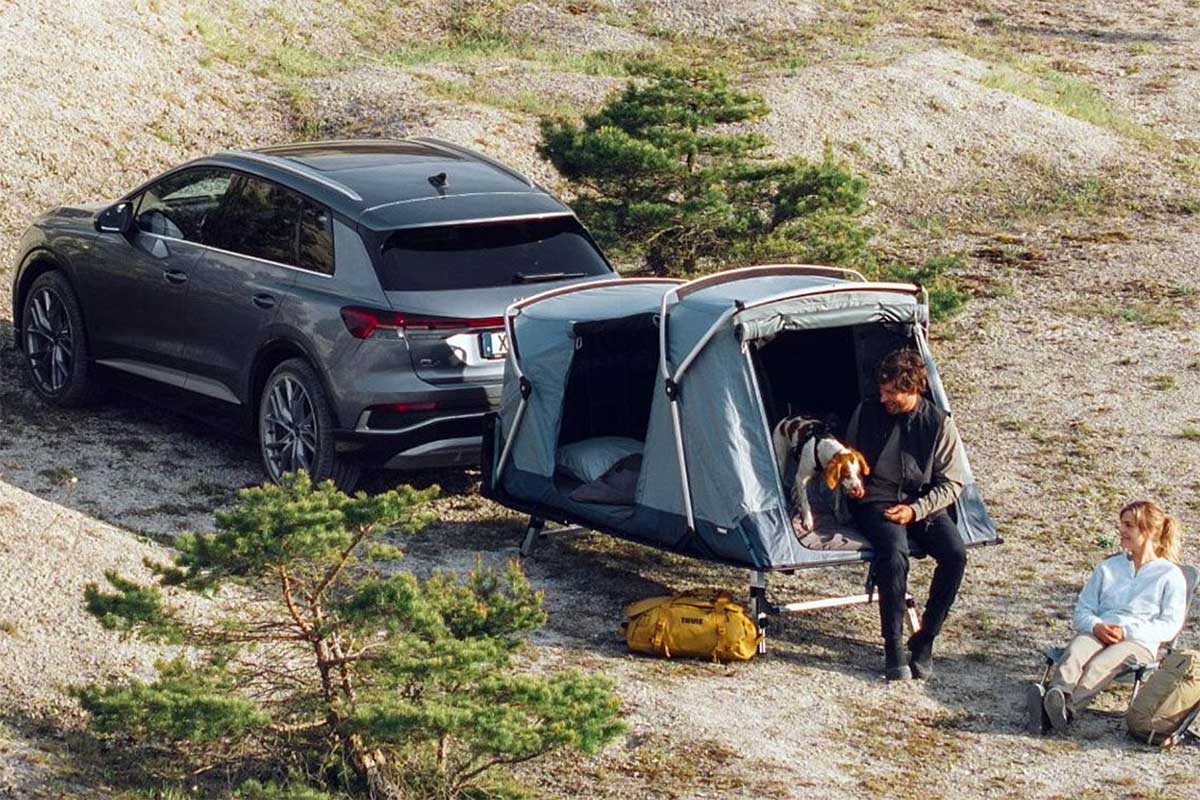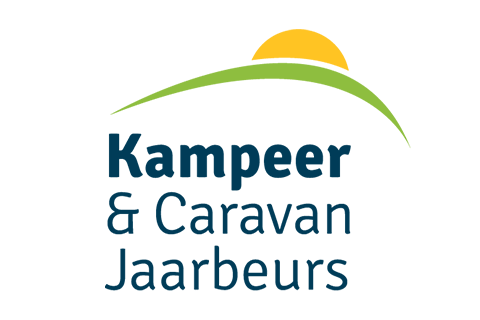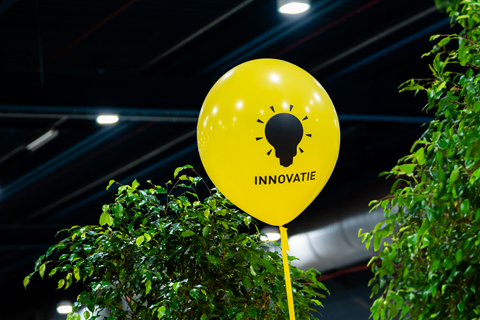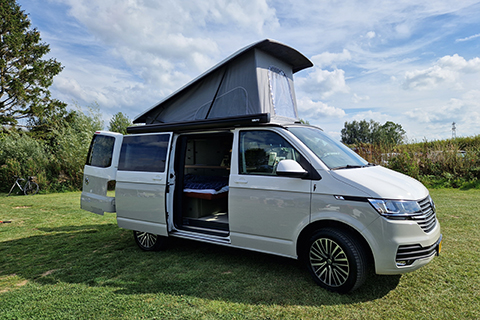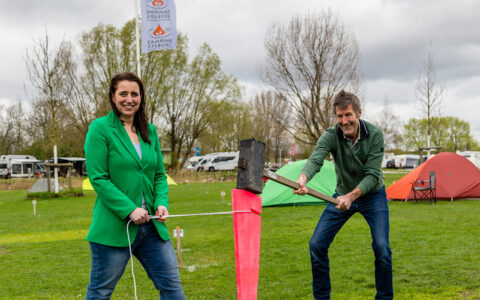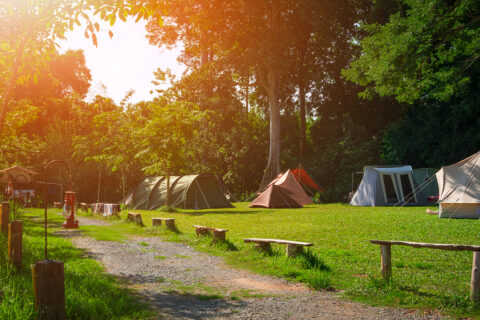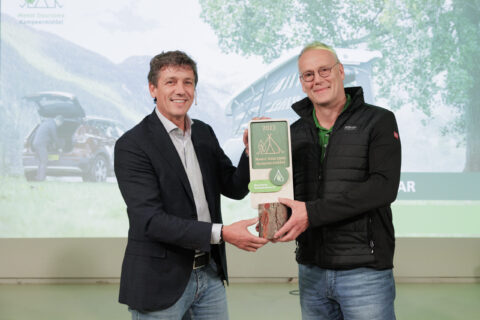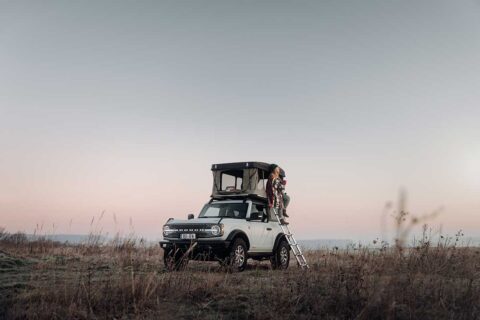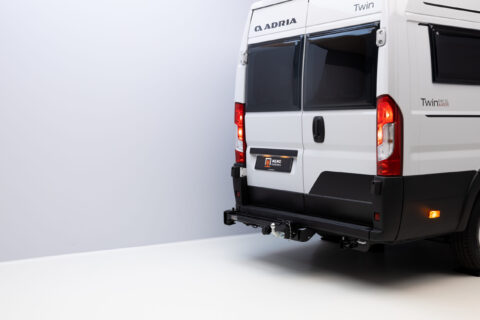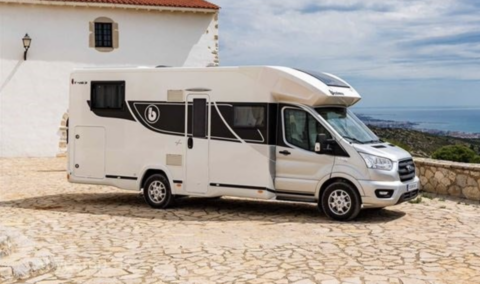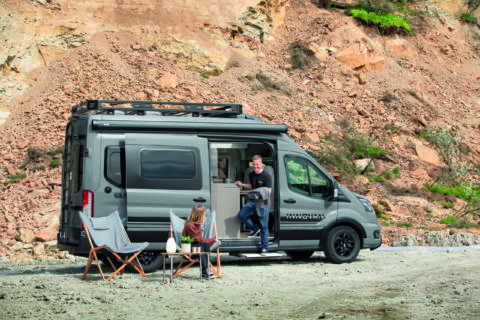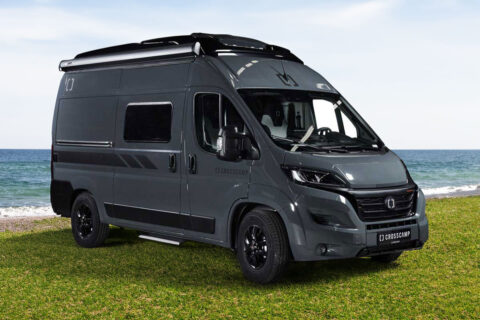This year again there will be plenty of firsts shown to the Dutch public. In this article we look at the most important trends and novelties.
Trend: Sustainability
Almost all RV and caravan manufacturers are working on sustainability. At least in the factories, where solar panels are used for lighting in the production halls, among other things. Also close to home: a good example is Karsten Tenten in the Netherlands, which even produces completely CO2 neutral.
Sustainability is also reflected in the camping equipment itself: Karsten launched a family tent last year that is made largely from tent cloth made from recycled jeans. Among tents and awnings, we see an important first from REDA, a Dutch family company that has been producing awnings for 33 years. The REDA Green 300 is a caravan awning for which special canvas has been used that uses silver ions to purify the air: 4 square meters is enough to offset the annual emissions of one passenger car. Other sustainable innovations we see this year in furniture fabrics in caravans (LMC, Dethleffs) for which recycled PET bottles are used, and there are motorhome brands (Ventje) that use FSC certified wood for furniture in the motorhomes and insulate the cars with sheep's wool.
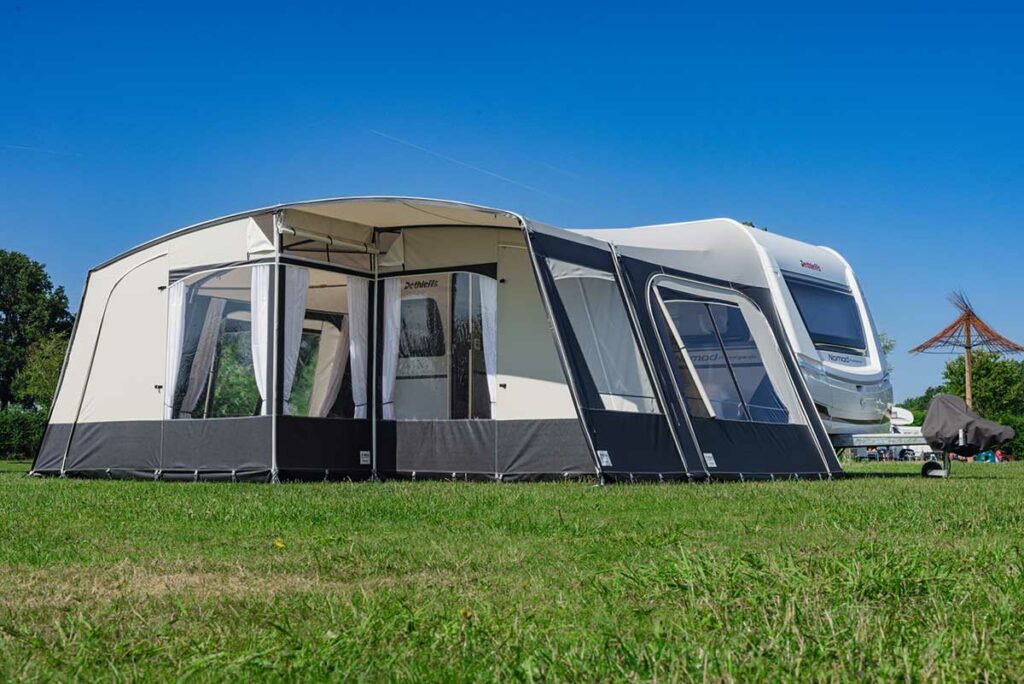
Electric campers
When it comes to sustainability, electric motorhomes are also a "hot topic," Electric motorhomes are also at the show, such as Fixxter, Tonke and new are the brands Ventje and Outbase, who have converted the electric-powered Volkswagen ID.buzz into a motorhome, even before VW itself showed their own motorhome prototype. For the larger - and therefore heavier - RV brands depend on what the automakers provide in terms of basic electric vehicles. These already exist, but are still unsuitable for motorhomes because of their low range.
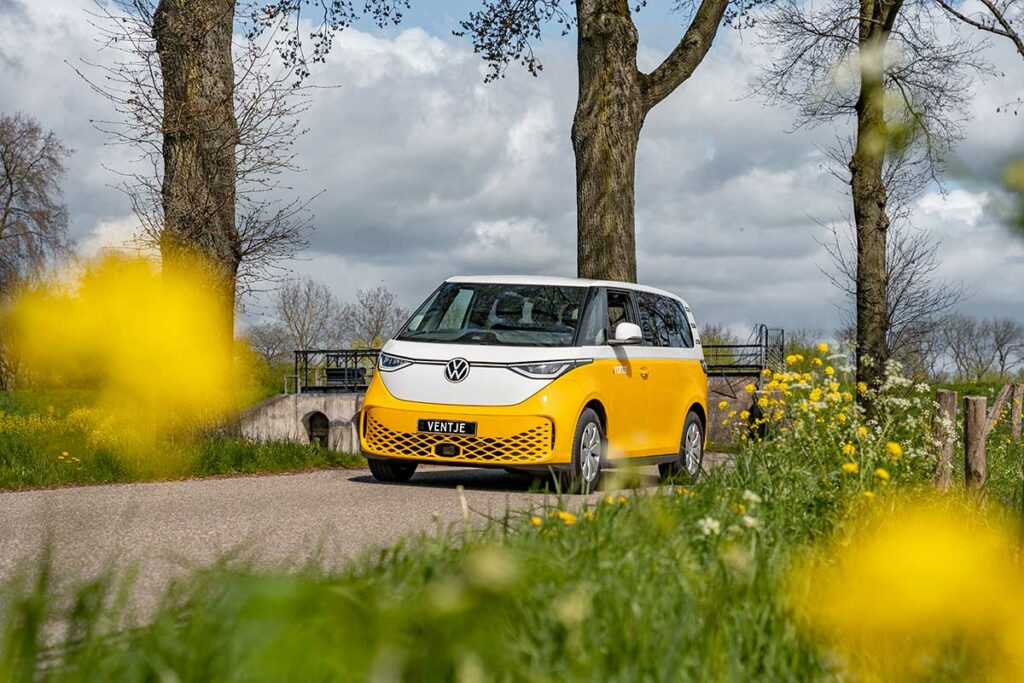
Solar panels and offgrid
There is a clear trend to make RVs even more suitable for "offgrid": camping in the great outdoors, although this is not allowed everywhere in Europe. Campervans are already largely independent of stationary facilities, having their own drinking water supply, a tank for waste water and having their own gas and electrical installation on board. By expanding that installation with solar panels and lithium batteries, it is possible to be "free" for longer periods of time. For tents, rooftop tents and folding trailers, there are also increasing opportunities to stand independently of the power pole, using systems that generate their own strip. This is done with so-called PowerStations: portable lithum batteries that can be powered by portable solar panels.
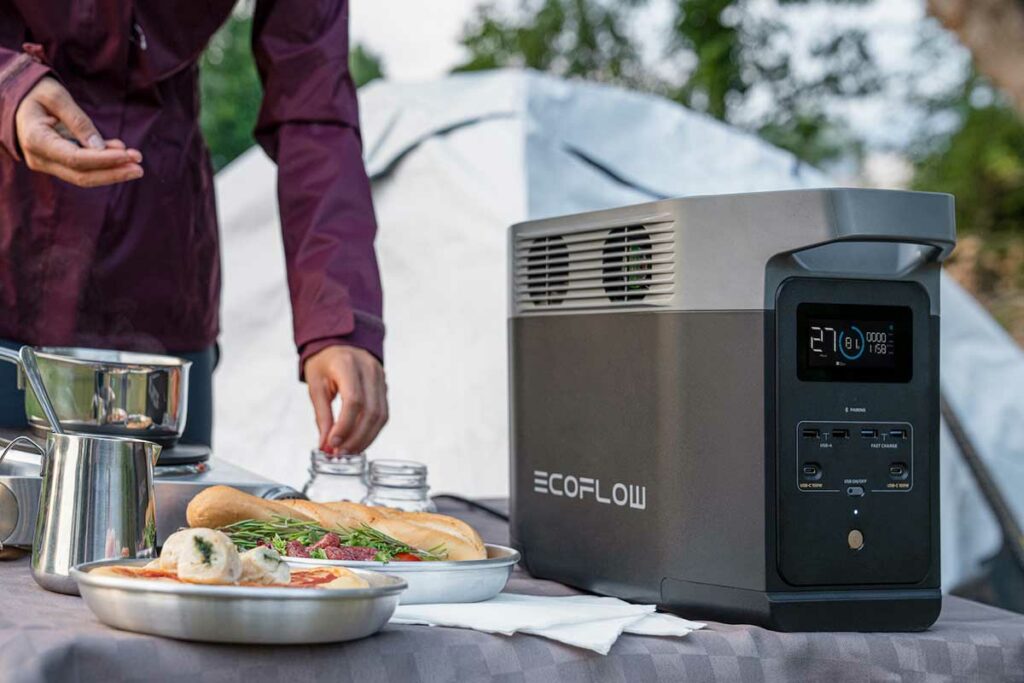
Trend: Handy and compact
Compact and handy: we see this development in various caravan and camper brands. First of all with caravans: there it is also a necessary "evil" to make caravans suitable for electric cars. After all, not everyone has a big Audi eTron or Tesla X parked outside their door. Although even these powerhouses have to contend with a sharply decreasing range, with a caravan on the tow bar. Streamline and weight of the caravan play a crucial role here. Knaus is therefore launching the Knaus Yaseo, which the caravan manufacturer has developed especially for the electric car. Even lighter is the Adria Aviva Light, which will also be on display at Camping & Caravan Jaarbeurs, and there are more brands carrying out downsizing operations in the development of caravans, with a view to suitability for using an EV - Electric Vehicle - as a caravan towing vehicle.
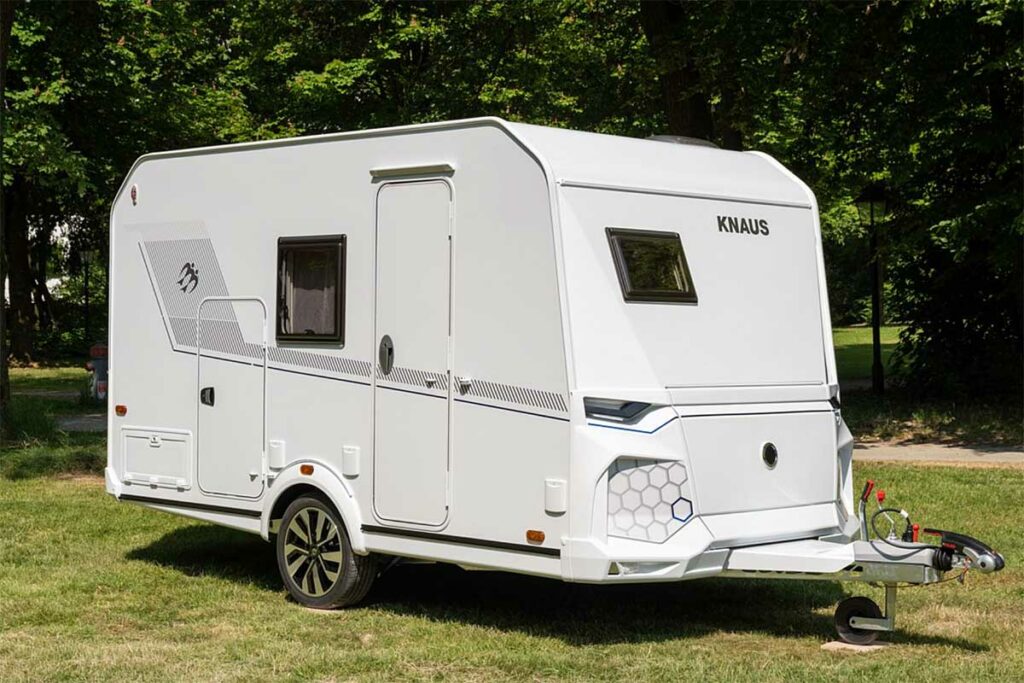
In motorhomes, too, "compact" seems to be a trend: we see increasingly short motorhomes under seven meters, with innovative layouts that still allow the popular "single beds" in the rear of the motorhome. Or, as with the Chausson X650: enormous interior space, because the double bed only appears when you want to use it: a push of a button is enough to lower it from the ceiling. Even in the already compact campervans we see clever space-saving solutions and a good example is the LMC Innovan 592 with a sliding worktop in the kitchen and a toilet in the bathroom that slides under the bed. Other remarkable campervans are the completely newly developed Pilote Atlas and the Rapido V65XL with four beds: a transverse bed in the rear and a fold-down bed hidden in the ceiling.
Trend : 4×4 and smart look-a-likes
Four-wheel drive motorhomes are also a trend, although of course this development is a bit at odds with the sustainability trend, due to the higher fuel consumption of this type of motorhome. Still, the rugged look of a four-wheel drive motorhome appeals to many people. There are RV brands that cleverly capitalize on this with models that do have a 4×4 look, but are "just" equipped with 2WD, such as the LMC, Innovan Active, the Dreamer D51 Trail and the aforementioned Pilote Atlas in the Trail version.
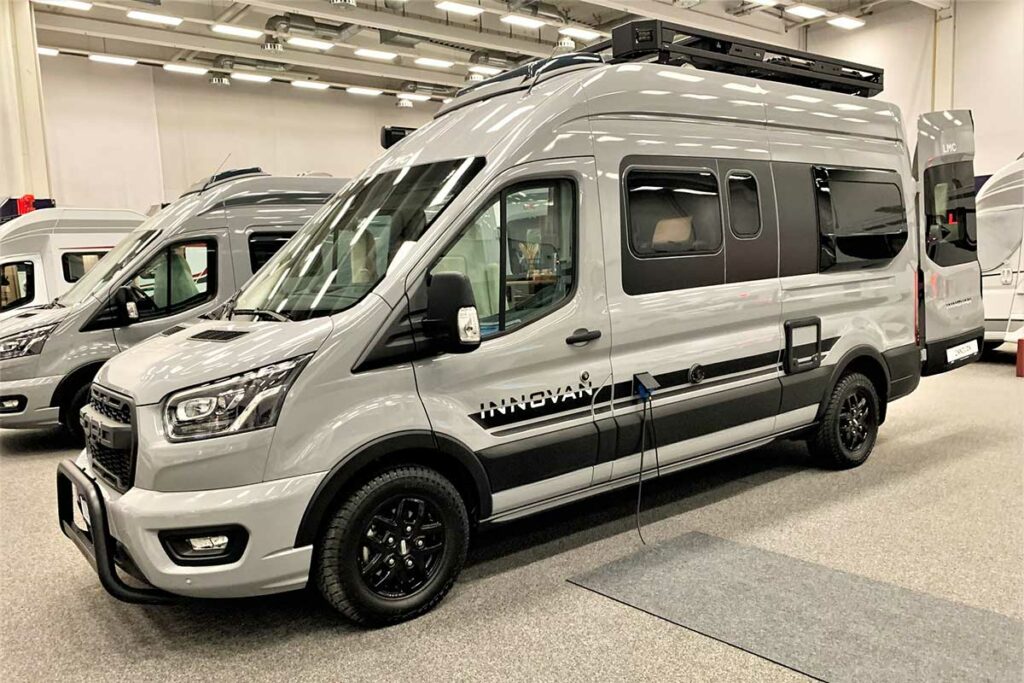
Ford advances among RV brands
You can't really call it a trend, but the development is undeniable: more and more brands are building their motorhomes on Ford. Thus, manufacturers are becoming less dependent on the Fiat Ducato, which until a few years ago was most often used to make recreational vehicles. However, Fiat cannot supply enough cars for motorhome construction, as a result of a large order from Amazon: the parcel delivery service that "briefly" ordered 50 thousand courier vans from the Italian automaker. As a result, RV brands started looking for alternatives, such as M.A.N., Volkswagen Crafter, Mercedes and especially Ford which, with the Transit, provides a large number of RV brands with basic mid-range vehicles.
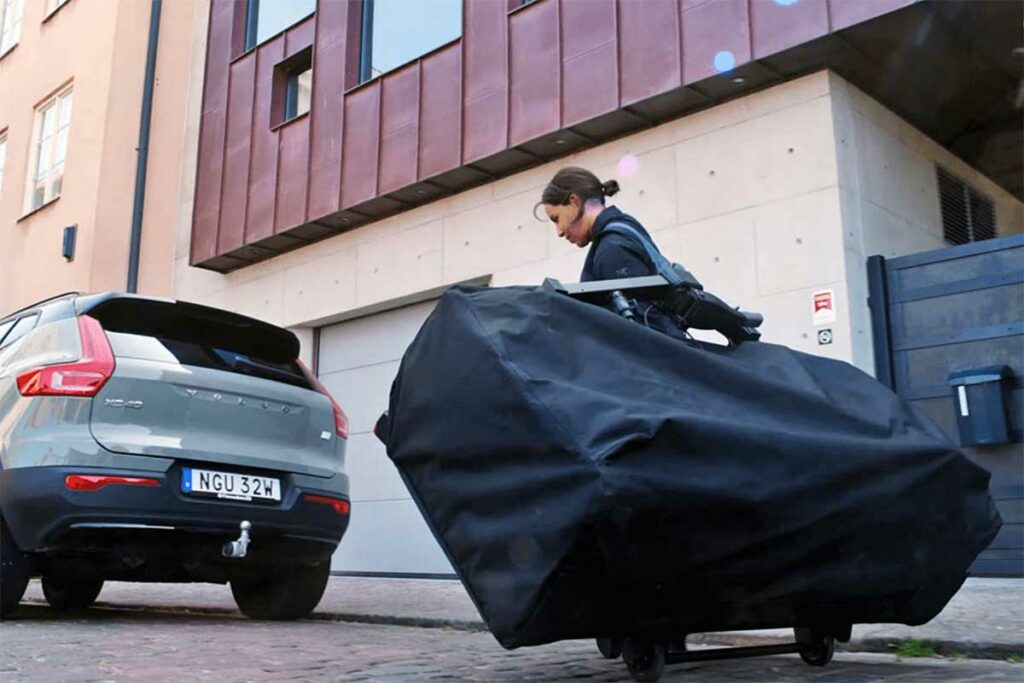
Trend: rooftop tents
Convenience, mobility and flexibility: these are the reasons why many people choose the rooftop tent. Besides, you no longer sleep on the cold ground and a roof tent fits on almost every car. This makes the rooftop tent currently the fastest growing camping device in the Netherlands. German brand Campwerk will introduce two new hardshell models at the event: the Campwerk Good Vibes and the iKamper Blue Dot Voyager. Dutch brand Dare To Be Different launches the Sitta, a softshell rooftop tent with a cover made of truck fabric to protect against wind and rain. The Swedish brand Thule, known for bike carriers as well as rooftop tents, launches a completely new product that they call - not entirely unjustly - a "revolution in outdoor living": a tent that can be transported on the tow bar of the car and that you unfold at your destination like a rooftop tent. You have to see it to believe it....
